
Energix Renewables, First Solar Enter into Framework Agreement
TEMPE, Ariz.--(BUSINESS WIRE)--Jul 16, 2023--
2023-07-16 17:24

Fact check: Ron DeSantis on Amanda Gorman poem being pulled from a Florida elementary school library
Florida Gov. Ron DeSantis said Friday that he "had nothing to do with" a poem recently being moved from an elementary school library to a middle school library.
2023-05-31 08:30

Everything you need to know about AI but were too afraid to ask
Business executives keep talking about it. Teachers are struggling with what to do about it. And artists like Drake seem angry about it.
2023-06-24 19:23

Edmunds: The top 6 infotainment systems available in 2023
Car infotainment systems are high-tech and rapidly increasing in their capabilities
2023-06-21 18:22
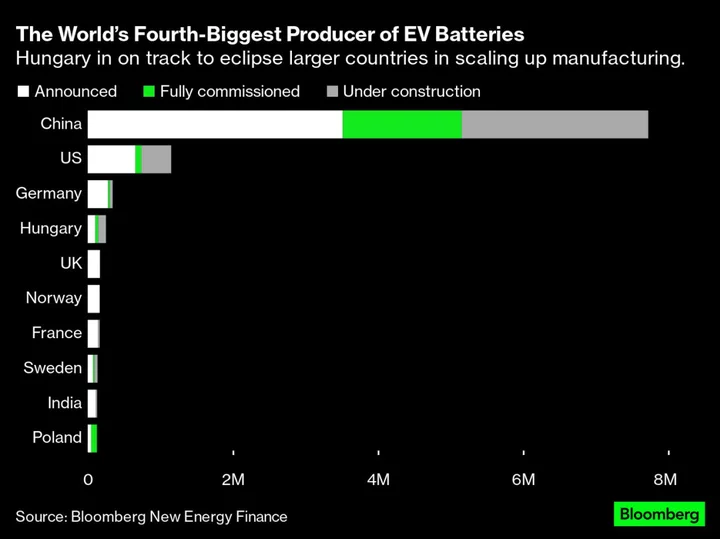
The Mission to Create Europe’s Battery Hub, Whatever the Cost
Next to fields of corn and sunflowers near the city of Debrecen in eastern Hungary, workers in hard
2023-09-19 12:46
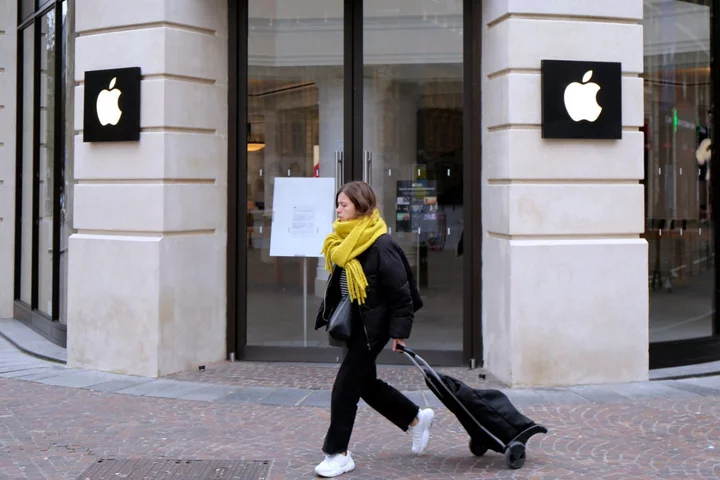
Apple banned from selling iPhone 12 in France due to ‘too high radiation’
Apple has been forced to halt sales of its iPhone 12 in France after a watchdog claimed the device emits too much radiation. The smartphone, which was first released in 2020, has a Specific Absorption Rate (SAR) that is above the legal limit, according to France’s National Frequency Agency (ANFR), which oversees radio-electric frequencies as well as public exposure to electromagnetic radiation. The agency tested 141 phones and found that the iPhone 12 was more than 40 per cent above the legal limit for SAR. The ANFR called on Apple in a statement on Tuesday to “implement all available means to rapidly fix this malfunction.” Corrective updates to the iPhone 12 will be monitored by the agency, according to the statement. If they don’t work, “Apple will have to recall” phones that were already sold, it said. The agency consistently tests devices for waves capable of being absorbed by the human body, measuring against the European Union standard of 4 watts per kilogram. The ANFR said the iPhone 12 met the required threshold when radiation levels were assessed for a phone kept in a jacket or in a bag. The Independent has reached out to Apple for comment. Jean-Noel Barrot, France’s junior minister for digital economy, told Le Parisien newspaper on Tuesday that the ANFR’s data would be shared with other EU member states, which he warned could have a “snowball effect” on Apple. “Apple is expected to respond within two weeks,” he said. “If they fail to do so, I am prepared to order a recall of all iPhones 12 in circulation. The rule is the same for everyone, including the digital giants.” The ANFR’s announcement came on the launch day of Apple’s latest iPhone 15, which saw the whole 12 series of iPhones discontinued. This means any ban is unlikely to have a significant impact on Apple’s phone sales, however a recall could prove damaging depending on the scale. Additional reporting by agencies Read More All the key announcements from Apple’s iPhone 15 event Why Apple getting rid of lightning cable iPhone charger is a big deal Here’s the brand new Apple Watch Apple to stop using leather in all new products
2023-09-13 18:29
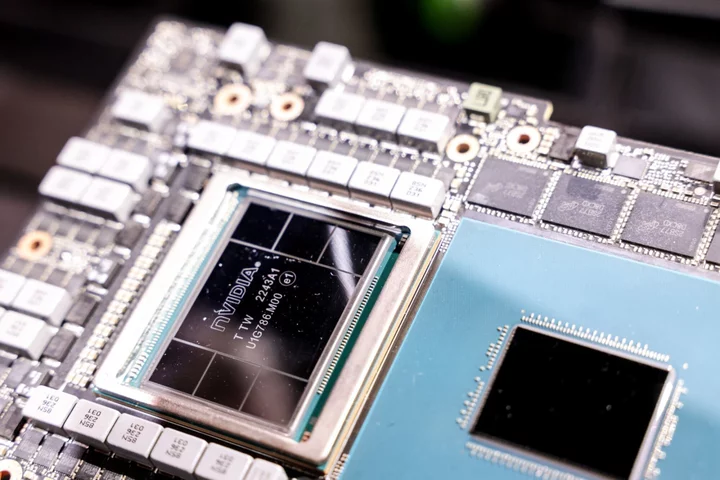
Nvidia Leads Selloff After Report of More US AI Chip Curbs
Nvidia Corp. led declines in tech stocks after a report Washington could close loopholes in the sale to
2023-06-28 11:15

BlizzCon® Returns to Anaheim November 3-4, 2023: Tickets On Sale July 8
IRVINE, Calif.--(BUSINESS WIRE)--Jun 29, 2023--
2023-06-30 01:28
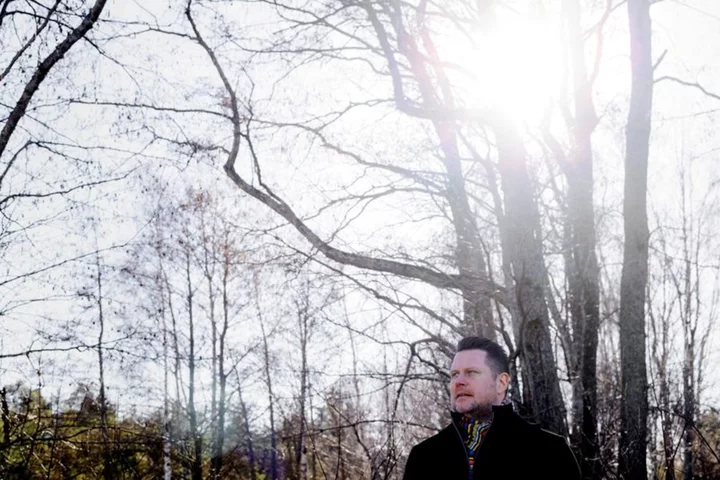
Tomb Raider games group Embracer lags forecast, maintains outlook
By Jesus Calero and Marie Mannes STOCKHOLM (Reuters) -Swedish games developer Embracer on Thursday reported slightly weaker than expected operating
2023-08-17 16:18

Turtle Beach Provides Hundreds of Recon Controllers for Gamers Outreach’s GO Karts Program for Kids in Hospitals
SAN DIEGO--(BUSINESS WIRE)--Sep 12, 2023--
2023-09-12 20:48

Twitter accused of failing to pay millions in employee bonuses after Musk takeover
Twitter failed to pay out annual bonuses to staff after its acquisition by billionaire Elon Musk despite repeated assurances from executives in the lead-up to the deal closing that the company would do so, according to a new lawsuit filed on behalf of employees.
2023-06-22 05:20

US author Cormac McCarthy dies aged 89
The Pulitzer Prize-winning author of The Road has died aged 89, his publisher says.
2023-06-14 04:22
You Might Like...

Jugo Research Confirms Bad Behavior During Virtual Meetings Is Rampant, Offers Free Etiquette Essentials Guide for Today’s Workplace

Level Brings Its Next-Generation Platform to Multifamily
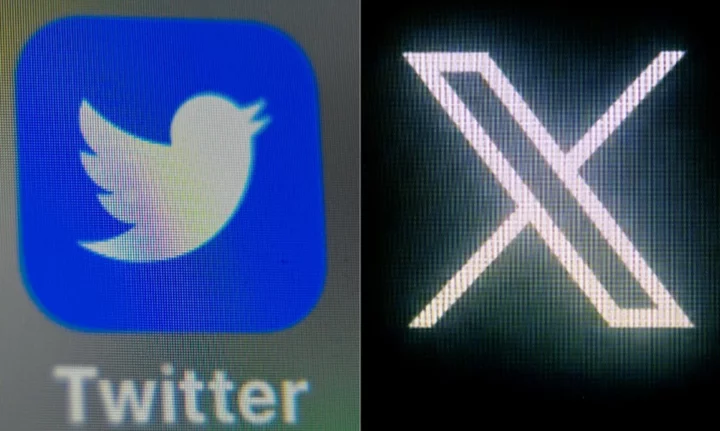
Musk rebrands Twitter, replacing bird logo with X

Hackers Contacted Cybersecurity Firm CEO’s Son, Wife in Extortion Attempt

Canada releases framework to phase out inefficient fossil fuel subsidies

Australia sees wheat, barley output dropping by a third next year

'Where’s my cut?' xQc demands Kai Cenat pay him for stealing 'camping idea' worth 'at least seven-figures'

Apple Will Ship In-Store Sales To Your House, Starting Next Month
